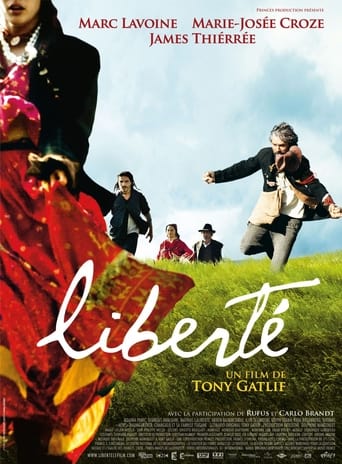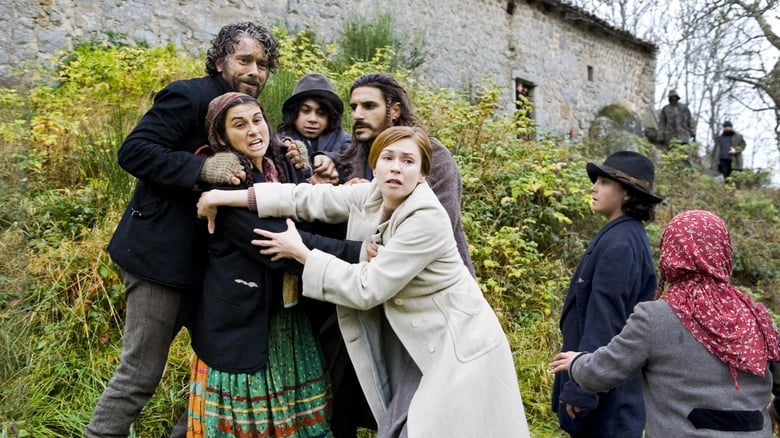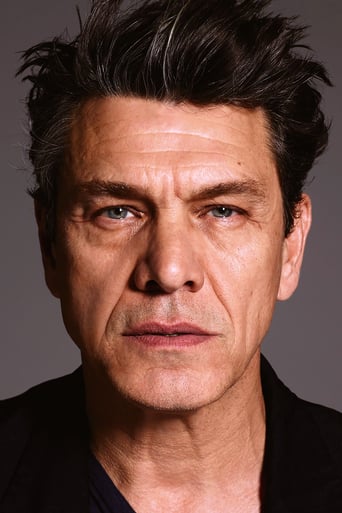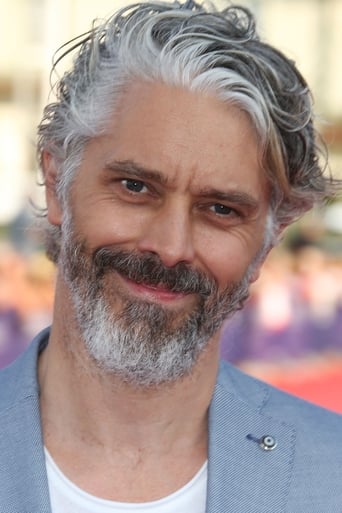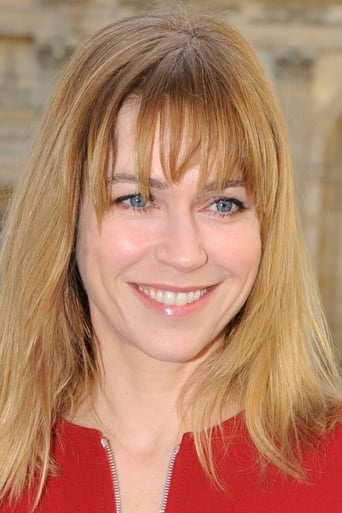Freedom (2009)

A Gypsy family travels the French roads during the Second World War, followed by Little Claude, a young boy seeking a new family after his parents "left and never returned". Upon reaching a town where they traditionally stop for a few months and work in vineyards, they learn that a new law forbids them from being nomadic. Theodore, the town's mayor, and Miss Lundi, the schoolteacher, protect and help the Gypsies. Despite this, They are arrested and placed in an internment camp. Theodore manages to rescue them and gives them a piece of property where they must settle. But the Gypsies' deeply ingrained thirst for freedom makes this sedentary lifestyle difficult to bear. After Theodore and Miss Lundi are arrested for resistance, the Gypsies decide they must get back on the move in order to remain free.
Watch Trailer
Cast


Reviews
Wonderful character development!
hyped garbage
From my favorite movies..
It's fun, it's light, [but] it has a hard time when its tries to get heavy.
Very few films have dealt with the persecution and annihilation of the gypsies or gitanos during World War Two by Hitler and his minions. For that reason alone, this film is important. If you are looking for other films, you might check out "The Man Who Cried" with Johnny Depp.This film was a nice surprise. I expected it to be depressing, but it was not. What Gatlif managed to portray through some very nice cinematography and story development is the gypsy love of nature and the outdoors. It was beautifully done.Another theme that comes across well in this film is the gypsy love of music. They seem to have an unusual flair for music, and they use it to enrich their own lives, but also to provide an income and support themselves.As someone with a history degree, I appreciated the fact that Gatlif attempted to shed some light on a subject that few have touched. I also appreciated the cultural insights on gypsies and their lifestyle. Anyone looking for something a little different should enjoy this film.
To me, this is one of those rare movies which open a door to another world - in this case, the bleak world of France during the Second World War. The movie is in French, but as an English speaking person, there was ample time for me to digest the subtitles and the action taking place on screen. I found the characters to be well rounded and real, with only a few minor hiccups. The acting is superb and very believable. Surprisingly, for a movie with such a supposedly sad theme, there were a few times when I found myself having a good old belly laugh, even though this movie is not a comedy. The humor comes from the ridiculous, but so real situations and/or some of the characters idiosyncrasies. Probably a bit like watching someone consciously avoid slipping on a banana peel, only to be run over by a Mac truck. In my humble opinion, this is a very well made and highly entertaining film.
First of all, sorry for all the details in the following review, but I guess those of you interested in this film may find them useful.Having followed Gatlif's progression as a filmmaker from the early 90s onwards - I still have his 80s works to catch -, I've been wondering for quite some time when he would tackle the Porraimos, the 'Devouring' in Nazi-occupied Europe which left 250-500.000 Sinti and Roma dead. It's a sadly neglected aspect of the Holocaust, and neglected for a reason: the stereotypes and social conditions which make Gypsies easy targets for fanaticism and slander are still very much in check, as demonstrated by the recent forceful deportations of Roma from France, Gatlif's home country. Unfortunately, Gatlif's usual strengths translate as weaknesses when it comes to the story structure such an issue calls for. His films are great when they center around music and place the characters around it (Gadjo Dilo, Latcho Drom, Swing). They are weak when the focus is on the characters proper, for Gatlif invariably attempts to create rather a tableau of images than empathy with the protagonist's dilemmas (Exiles), or, even worse, when he appeals to romanticist views of Gypsies for the sake of accessibility (Transylvania). In the case of 'Freedom', all these weaknesses come into full swing: there's next to zero character development, which results in very weak story structure. There's little music to render the admittedly great cinematography alive. The scenes of Gypsies in (French) internment camps are long, dreary and lifeless - the controversial fact that French police collaborated with the Nazi Regime, which later deported the Gypsies to death camps, is somewhat alluded to (in the character of the limping agent) but incomprehensibly so if you don't know already. This ambiguity may be explained by the fact that Sinti and Roma rarely discuss the Holocaust due to taboos in regard to the dead. It's one of the most important aspects of Roma culture and again alluded to in the scene where the Kumpania ('extended family') refuses to use a house for fear of the spirits of the dead (muló). If you are wondering why there are so little films and books dealing with the Holocaust in spite of its impact on the Roma - that would be the most important reason. This also explains the blatant anachronism to use Romanian Roma (who speak a Transylvanian dialect of Romanes) instead of French Manouche (who speak Sinti Romanes, a different language): the (Western European) Sinti were wiped out by the Nazis to an extent of about 80%, their culture was almost completely annihilated, therefore they understandably reluctant to participate in reenactments of this catastrophe. The (Eastern European) Roma were also persecuted to an appalling extent, but their social structure survived, which may allow them to enact the persecution with more confidence.Still, Gatlif himself has illustrated a much better way to deal with this silence in 'Latcho Drom', in a shot of an old woman singing a lament, with the camera just brushing over her arm - and her tattooed Auschwitz internment number. Given that the (silent) way Gipsies deal with the Holocaust is fundamentally different from that of most Jewish groups, this kind of symbolism would probably have been more appropriate and artistically successful. As it is, 'Korkoro' is still quite important being the first film by a Gypsy film maker to deal with the subject. But judged by itself, it's a failure, and not a very interesting one to watch failing.
I've seen half a dozen or so of Tony Gatlif's films and I've enjoyed them all - in fact his previous film, Transylvania, was my equal favourite cinema release of 2008. While Gatlif's work documents the way of the Roma (gypsies), the themes are universal: celebrations of music, culture, ethnicity and so on. It's the dramatic and visual way in which Gatlif portrays these elements that has much impact for me.Korkoro certainly doesn't disappoint. The visuals are beautifully rendered, and the frame is used wonderfully - sometimes with extreme close-ups, sometimes panoramic. Like Robert Guédiguian's latest film, The Army of Crime, the film is set during World War II. According to the end credits, an estimated 250,000 to 500,000 of Europe's 2 million pre-war gypsies died at the hands of the Nazis. This story follows a wandering family of 15 of those.The Germans in occupied France decreed a law forbidding the movement of itinerants and this family find themselves stranded in a town where they seasonally perform farm work, before they are imprisoned in a camp. The family has the sympathy of the town's mayor - who provides land for the family - and the local teacher, Mademoiselle Lundi (Marie-Josée Croze), who is based on the real-life resistance fighter Yvette Lundy.I love this film. Not only does it have all the trademark Gatlif traits: wild depictions of gypsy life, wild music and spurts of insanity, but its presentation of the rarely depicted and tragic part that the Roma played in WWII combine to make this a lovely story.Some of the visuals are amazing, like a sick horse and its gypsy treatment (it'll have you wondering how the hell they got animals to 'act'). The cinematography is superb. The acting is strong and Croze's role is especially beautifully understated. Well worth seeing.

